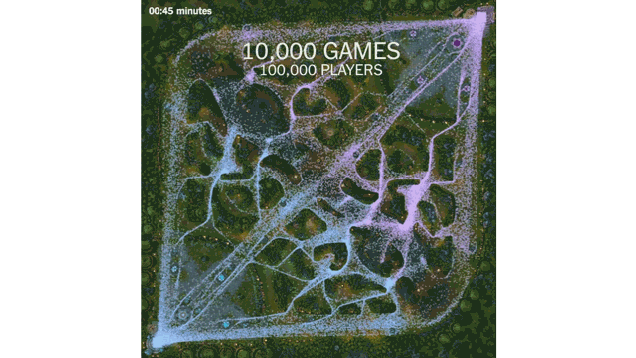My initial instinct was that the connection between Game Studies and DH was located on the border between these two fields in the area of software or code studies. This felt like a long way from my interest in play and discourses of labor/professionalization or eSport. However, in thinking about the kind of texts we might include under the purview of software studies and esports it occurred to me that one fruitful text might be the replay file. These relatively small files allowed players to share replays of games that they've played without needing to record or send video. In the early days of competitive gaming (and still in the era of live streams and YouTube VoDs), matches are saved as an accounting of game states. Rather than a comparatively large video file, an entire game could be saved and re-executed within the game program. This meant that fans of StarCraft, for example, could re-watch their own games, but also share their replays with other players or download games played by professionals.
An example of a website dedicated to housing replays can be found here. The implications of this technology for Both Game studies and DH are multiple, the replay becomes a discrete text for analysis, it points to other game texts like save states created by and only readable within the game software, and together it allows for a number of level of of games analysis. For example, the New York Times recently combined records of thousands of matches of the popular eSport text League of Legends in order to produce an aggregate image of where players are at any point in an average match. This kind of analysis turns play into a text open to study and makes more clear the connection between visible action in the games interface and the invisible calculations taking place at the level of software.

Potential topics may include:
Game States as Texts
Replays Files, eSport History, and Preserving Play
Ways of Visualizing and Aggregating Game Play
Game States, Replays, Ghosts as Community Texts
The Legibility of Game State Files
In thinking of eSsport as a growing industry and the issues of aggregate analysis opened by this week's readings I might also be able to identify discursive changes to the treatment of game play or the promotion of professional gaming through something like Google's Ngram Viewer or a text analysis of promotional material for professional gaming. I've suspected a turn from treating of professional game play as labor/work/a job to a matter of skill/sport as the field has matured. Changing players from working professionals (with a dream job) to athletes. Text analysis tools may help to solidify these hunches.





